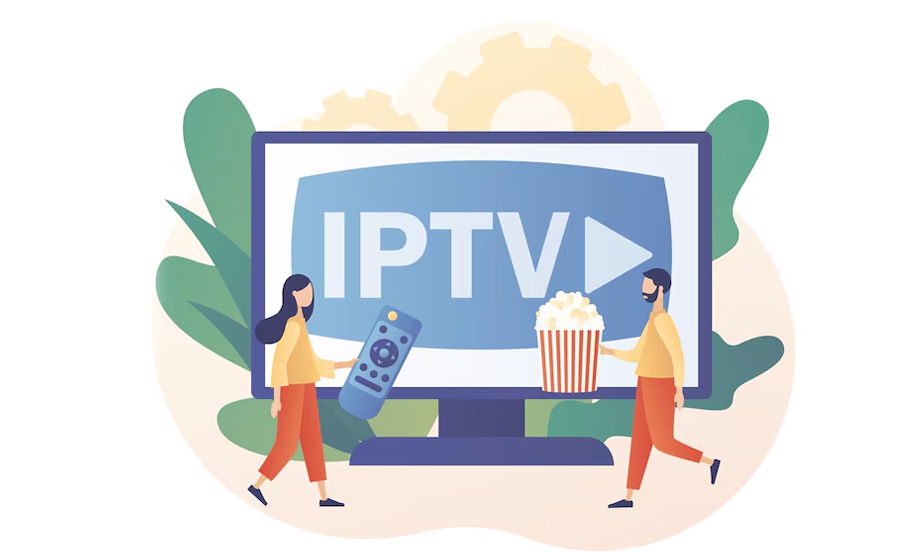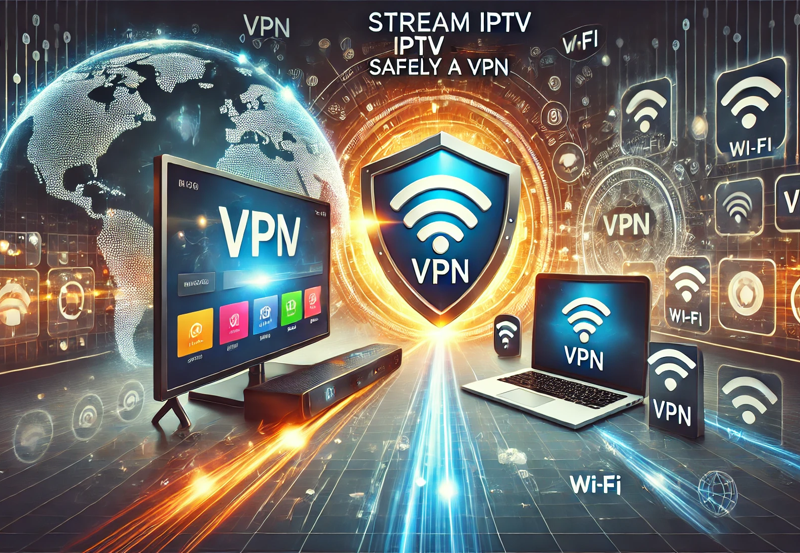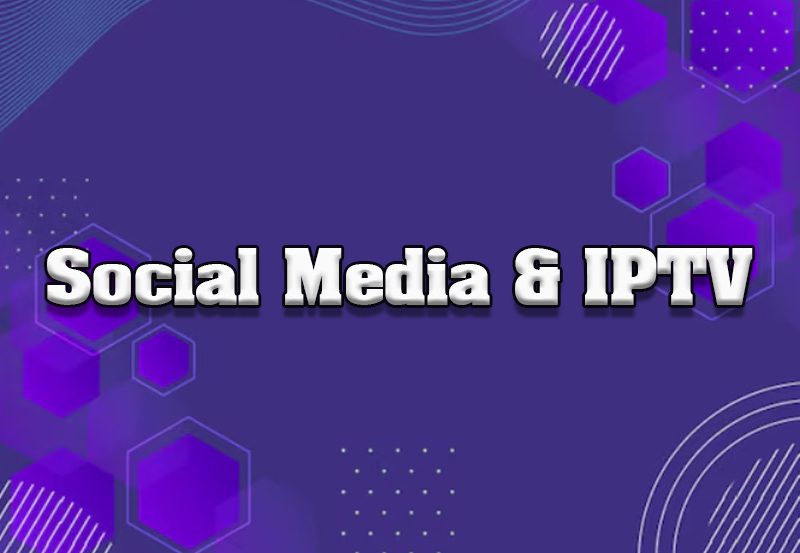IPTV (Internet Protocol Television) is a digital television broadcasting system that delivers content over the internet instead of traditional cable or satellite methods. This technology enables users to stream live TV channels, on-demand movies, and other multimedia content directly to their devices, providing flexibility, convenience, and an enhanced viewing experience.
This guide provides an in-depth introduction to IPTV, explaining how it works, its types, benefits, and how to get started with it.
What is IPTV?
IPTV uses the internet to deliver TV programs, live broadcasts, and on-demand content. Unlike traditional broadcasting methods, where signals are transmitted via satellites or cables, IPTV relies on Internet Protocol to send data packets to your device. This makes it more flexible and allows for features like on-demand viewing, time-shifted TV, and interactive services.
How Does IPTV Work?
IPTV works by converting traditional TV signals into digital formats and transmitting them over the internet. The process involves:
- Content Delivery:
- TV programs and videos are encoded into digital streams.
- Content Storage:
- Content is stored on servers for on-demand access or streamed live.
- User Request:
- Users access IPTV content via an app or set-top box by sending a request to the server.
- Data Streaming:
- The server sends the requested content to the user’s device in real-time.
Types of IPTV Services
There are three main types of IPTV services:
1. Live TV
- Streams live broadcasts over the internet, similar to cable or satellite TV.
- Examples: News channels, sports events, and live entertainment.
2. Video-on-Demand (VOD)
- Offers a library of movies, TV shows, and other content that users can watch anytime.
- Examples: Netflix, Hulu, and Amazon Prime Video.
3. Time-Shifted TV
- Allows users to watch previously aired programs at their convenience.
- Examples: Catch-up TV services or pause-and-play live broadcasts.
Benefits of IPTV
1. Flexibility
- Watch content on various devices, including TVs, smartphones, tablets, and laptops.
2. Cost-Effective
- Subscriptions are often cheaper than traditional cable or satellite packages.
3. Customizable
- Choose the channels or content you want to watch, avoiding unnecessary bundles.
4. High-Quality Streaming
- Supports HD and 4K resolution for an immersive viewing experience.
5. Interactive Features
- Includes features like pause, rewind, and fast-forward for greater control over viewing.
How to Access IPTV
To use IPTV, you’ll need:
- An Internet Connection:
- A minimum speed of 10 Mbps for HD and 25 Mbps for 4K streaming.
- An IPTV Subscription:
- From a reliable provider offering M3U playlists or access portals.
- A Compatible Device:
- Smart TVs, smartphones, tablets, or dedicated IPTV boxes like MAG or Firestick.
- An IPTV App:
- Popular apps include TiviMate, IPTV Smarters Pro, and Perfect Player.
Devices Compatible with IPTV
- Smart TVs:
- Most modern TVs support IPTV apps.
- Streaming Devices:
- Firestick, Roku, Apple TV, Chromecast.
- Mobile Devices:
- Android and iOS smartphones and tablets.
- Computers:
- Windows, macOS, or Linux PCs with IPTV apps or media players.
- Set-Top Boxes:
- MAG boxes, Android TV boxes, or NVIDIA Shield.
How to Set Up IPTV
1. Choose an IPTV Provider
- Research and select a reliable provider offering high-quality streams and good customer support.
2. Install an IPTV App
- Download an IPTV app compatible with your device (e.g., TiviMate for Android, IPTV Smarters Pro for multiple platforms).
3. Add Your Playlist or Portal
- Enter the M3U URL or portal link provided by your IPTV provider into the app.
4. Start Watching
- Browse the channels or on-demand library and enjoy streaming.
Challenges and Solutions in IPTV
1. Geo-Restrictions
- Challenge: Some content may be blocked in specific regions.
- Solution: Use a VPN to bypass restrictions.
2. Buffering
- Challenge: Slow internet or server overload can cause interruptions.
- Solution: Upgrade your internet speed or switch to a wired connection.
3. Reliability of Providers
- Challenge: Not all providers are trustworthy or offer high-quality streams.
- Solution: Research reviews and test free trials before committing.
Legal Aspects of IPTV
- IPTV is legal as long as the provider has proper licenses for the content.
- Illegal IPTV services often offer copyrighted material without permission, posing risks of legal action and poor reliability.
- Always choose a reputable provider to avoid legal complications.
Popular IPTV Apps
1. TiviMate
- Advanced features like multi-screen support and EPG integration.
2. IPTV Smarters Pro
- User-friendly and supports multiple playlists.
3. Perfect Player
- Lightweight and customizable with external player support.
4. VLC Media Player
- Free and versatile, supports M3U playlists.
Advantages of IPTV Over Traditional TV
| Feature | IPTV | Traditional TV |
|---|---|---|
| Flexibility | Watch anytime, anywhere | Fixed schedule |
| Customization | Choose channels or VOD | Predefined bundles |
| Cost | Generally cheaper | Expensive packages |
| Interactivity | Pause, rewind, and fast-forward | Limited |
| Content Variety | Global access | Region-specific |
Tips for Beginners
- Start with Free Trials:
- Many providers offer free trials to test their service.
- Use a Stable Internet Connection:
- Ensure consistent speeds for smooth streaming.
- Explore Different Apps:
- Try various IPTV apps to find the one that suits your needs.
- Check Provider Reviews:
- Choose a reliable provider with good customer feedback.
- Use a VPN:
- Protect your privacy and bypass geo-restrictions.
Conclusion
IPTV is revolutionizing how people consume television and multimedia content. Its flexibility, affordability, and interactive features make it an attractive alternative to traditional TV. Whether you’re a tech-savvy user or a beginner, understanding how IPTV works and setting it up is straightforward. By choosing the right provider and app, you can enjoy a personalized and high-quality streaming experience tailored to your preferences.





